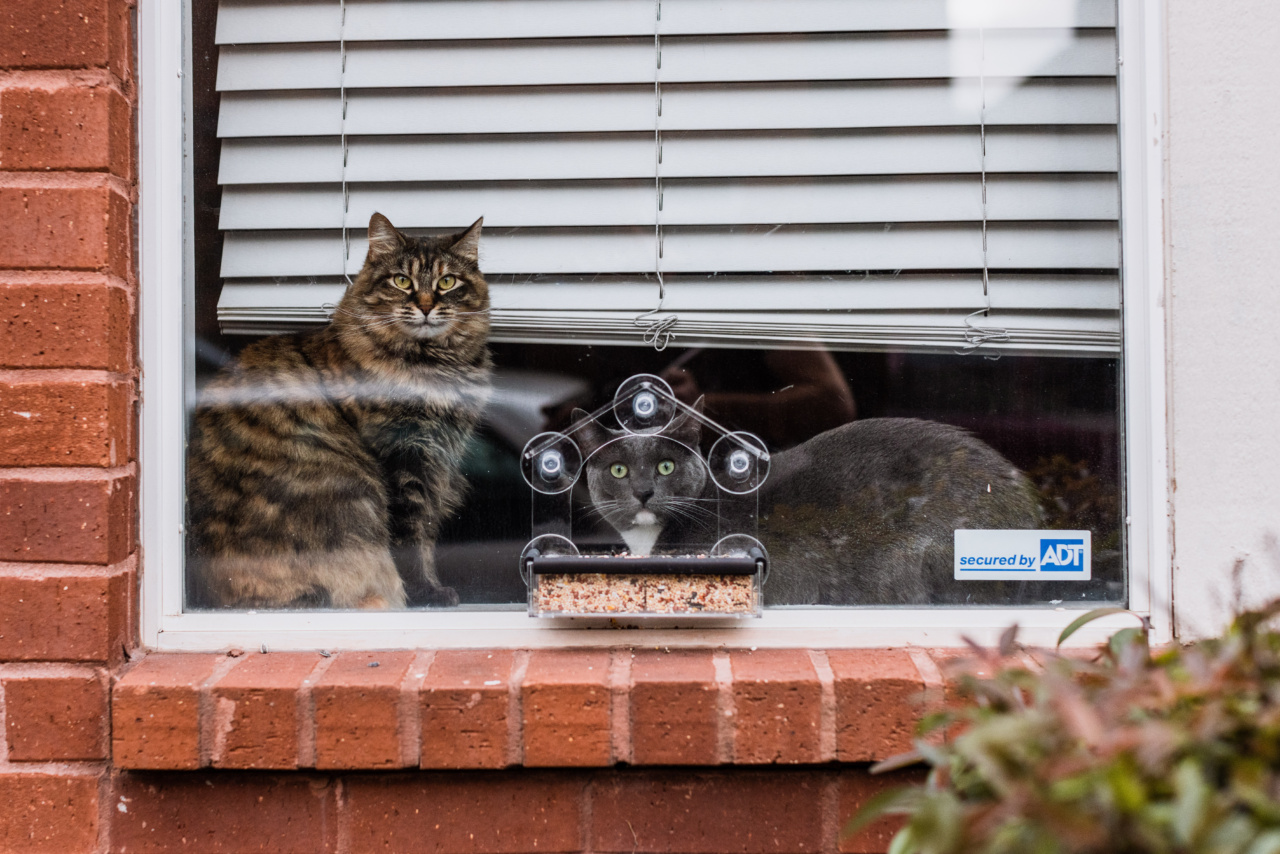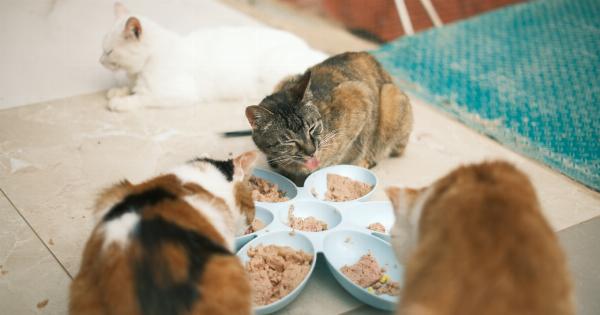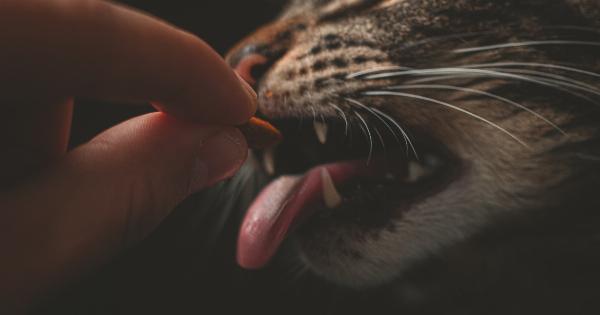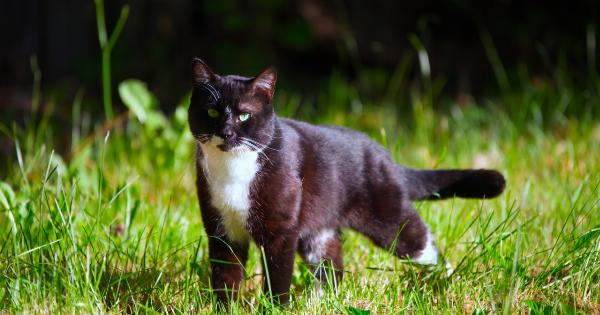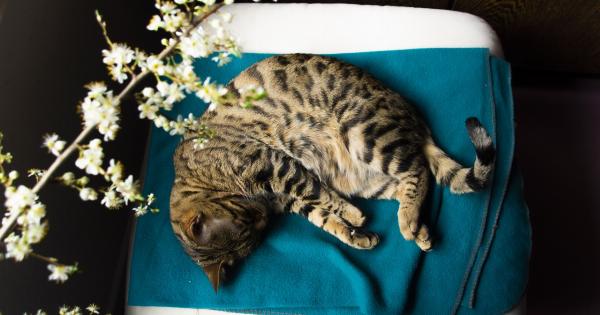As a responsible cat owner, it is important to pay close attention to your feline friend’s behavior. Cats are known for their peculiar habits and unique personalities, but sometimes their actions may indicate that something is wrong.
If you notice any changes in your cat’s behavior, it is essential to determine whether they are just acting out of character or if they might be sick. In this article, we will discuss various signs that can help you identify if your cat is acting strange due to an underlying health issue.
1. Lack of Appetite
One of the most common signs that a cat is sick is a noticeable decrease in appetite. If your cat suddenly loses interest in their food or stops eating altogether, it could be a sign that they are unwell.
A loss of appetite can be caused by various health problems, including dental issues, gastrointestinal disorders, or even more serious conditions. It is crucial to monitor your cat’s eating habits and consult a veterinarian if their appetite doesn’t return to normal within a day or two.
2. Excessive Grooming
Cats are known for their grooming rituals, but when it becomes excessive, it may indicate an underlying problem. If you notice your cat constantly licking, chewing, or scratching themselves, it could be a sign of fleas, allergies, or skin infections.
Excessive grooming can lead to hair loss, skin irritation, and even open wounds. Make sure to check your cat’s skin for any signs of redness, bumps, or inflammation, and seek veterinary advice if the excessive grooming continues.
3. Changes in Litter Box Habits
Monitoring your cat’s litter box habits is crucial in assessing their overall health.
If your cat starts using the litter box more frequently or suddenly begins to avoid it altogether, it may be a sign of a urinary tract infection, bladder stones, or other urinary issues. Similarly, if you notice blood in the urine or if your cat meows in pain while using the litter box, it is essential to consult a veterinarian promptly.
4. Unusual Vocalizations
Cats communicate through their vocalizations, and a change in their usual meows, purrs, or hisses can be a cause for concern.
If your cat starts vocalizing more than usual or if their meows sound different and distressed, it may indicate pain or discomfort. It is important to observe their behavior closely and pay attention to any other accompanying signs to determine the cause.
5. Lethargy and Lack of Energy
If your typically active and playful cat suddenly becomes lethargic and lacks energy, it could be a sign of illness.
Cats are known for their independent nature, but sudden changes in behavior, such as excessive sleeping or unwillingness to engage in their usual activities, should not be ignored. Lethargy can be a symptom of various health issues, including infections, organ problems, or even depression.
6. Weight Loss or Gain
Significant changes in your cat’s weight can be indicative of an underlying problem. Unexplained weight loss may be a sign of an underlying medical condition, such as hyperthyroidism, diabetes, or gastrointestinal disorders.
On the other hand, sudden weight gain can also be a cause for concern as it can lead to obesity, which is a risk factor for various health issues. Regularly monitoring your cat’s weight and consulting with a veterinarian can help identify and address any potential problems.
7. Changes in Drinking Habits
Dehydration can have severe consequences for cats, so any changes in their drinking habits should be taken seriously.
If you notice that your cat is drinking excessively or, conversely, has stopped drinking water altogether, it could indicate an underlying health issue. Increased water intake may be a sign of conditions like kidney disease or diabetes, while a decrease in water consumption can lead to dehydration and should be addressed promptly.
8. Behavioral Changes
Any sudden and drastic changes in your cat’s behavior can be a sign of sickness. For example, if your cat becomes agitated, aggressive, or excessively clingy, it may indicate an underlying health issue or discomfort.
Cats are creatures of habit, so any disruption in their normal routine, such as changes in sleeping patterns or withdrawal from social interactions, should not be overlooked.
9. Respiratory Issues
Difficulty breathing, coughing, sneezing, or wheezing are all signs that your cat may be experiencing respiratory problems. These symptoms can be caused by various factors, such as infections, allergies, asthma, or even heart disease.
If you observe any respiratory distress, it is critical to seek immediate veterinary attention to ensure your cat can breathe and receive appropriate treatment.
10. Vomiting or Diarrhea
While occasional vomiting or diarrhea can be common in cats, persistent or frequent episodes should raise concerns. Vomiting can be a sign of a digestive issue, dietary problems, or even ingestion of toxic substances.
Diarrhea, on the other hand, may indicate gastrointestinal infections, food intolerances, or parasites. If vomiting or diarrhea persists for more than a day or is accompanied by other worrisome symptoms, it is important to consult a veterinarian.
In Conclusion
As a cat owner, it is crucial to be attentive to your feline friend’s behavior and notice any changes that may suggest they are not feeling well.
While cats can sometimes exhibit odd behaviors that are harmless, it is better to be safe than sorry when it comes to their health. If you notice any of the aforementioned signs, it is essential to consult with a veterinarian to ensure your cat receives the necessary care and treatment.
